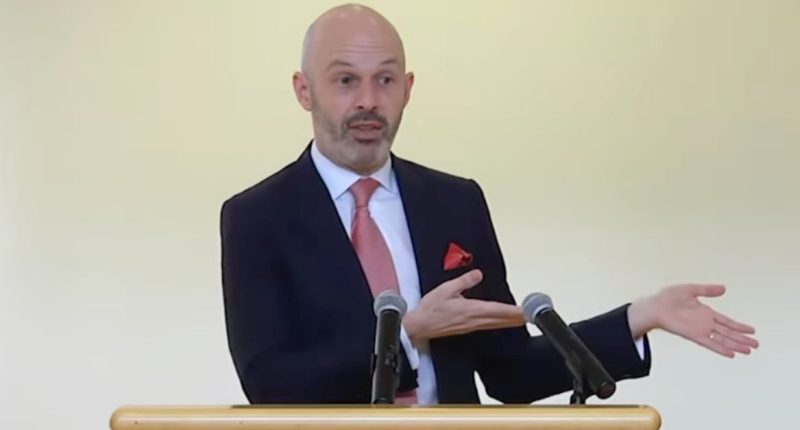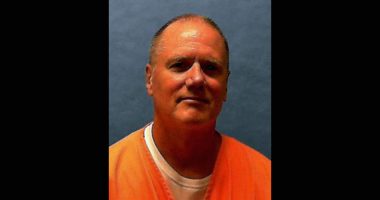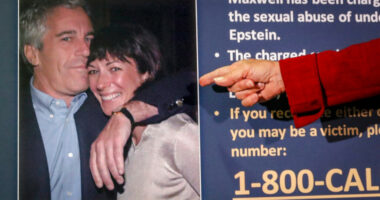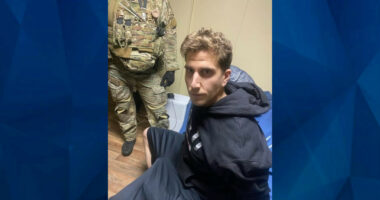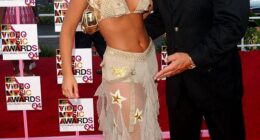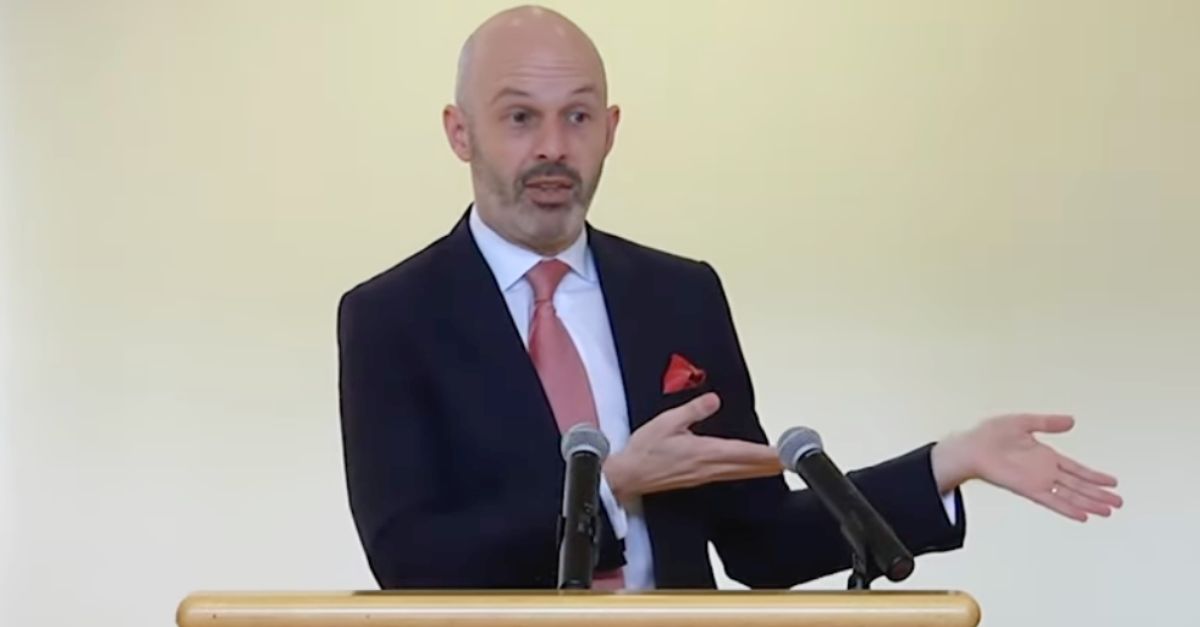
Supreme Court attorney Tom Goldstein (UNC School of Law/YouTube).
Attorneys for Supreme Court lawyer and SCOTUSblog co-founder Tom Goldstein — who is charged with tax evasion and accused of “hiding millions” — are calling for sanctions against federal prosecutors for making “deeply misleading and, at worst intentionally false” accusations against him in court, his legal team says.
“This conduct is part of a broader pattern of false and misleading statements by the government in this investigation and prosecution,” wrote attorney Jonathan Kravis in a Wednesday filing, which was made in support of an emergency motion to compel the Justice Department to produce “sworn” grand jury testimony of an office manager that DOJ lawyers claim was offered cryptocurrency by Goldstein and “bribed” to help obstruct justice.
According to Goldstein’s legal team, when DOJ lawyers filed their opposition to the motion on March 14, the government “completely reversed course” — revealing “for the first time” that the manager’s testimony “is flatly inconsistent with the government’s repeated public accusation” that Goldstein attempted to obstruct the investigation into his alleged crimes.
“In briefing on Defendant’s detention and release conditions, the Government proffered to the Court certain facts concerning Defendant’s repeated offers of cryptocurrency and other things of value to a witness who ‘was the one and only staff member … at Defendant’s law firm … familiar with the law firm’s financial records,”” the DOJ said in its opposition filing. “The witness has explained that Defendant did not suggest that the witness not assist in the investigation, and the witness cannot testify as to Defendant’s subjective intent.”
Goldstein’s lawyers say the DOJ hurled false accusations at him in court filings that have “gravely injured” his reputation based on evidence that it allegedly compiled showing the manager’s relation to Goldstein, including “contemporaneous text messages” with statements like “(Goldstein) keeps offering me money” and “it’s so, so uncomfortable.”
Specifically, Goldstein’s team points to allegations made by federal prosecutors that he used cryptocurrency accounts in violation of his release conditions, that he has access to “millions of dollars in secret cryptocurrency” and that he “bribed a witness,” according to Kravis’ motion on Wednesday, as all being “misleading” claims.
“This belated confession (by the manager) — made only when faced with the imminent prospect of being required to disclose the testimony — shows that the government’s prior representations to the Court on this issue were at a minimum deeply misleading, and at worst intentionally false,” Kravis said. “On three separate occasions, the government told the Court in public filings that Mr. Goldstein offered a witness cryptocurrency to obstruct the investigation. In one of those filings, the government told the Court that the witness’ ‘sworn testimony’ corroborated this allegation — that it left no other plausible explanation. … Now that it has been forced to disclose the exculpatory witness testimony, the government reverses course and attempts to downplay the significance of its original accusation.”
Kravis went on to call the DOJ’s retreat “striking,” saying prosecutors have made “no meaningful attempt” to defend what’s going on with the office manager. He accused the DOJ of violating the grand jury secrecy provisions of Federal Rule of Criminal Procedure 6(e), which states — subject to certain limited exceptions “not applicable here,” per Kravis — that an “attorney for the government” must not “disclose a matter occurring before the grand jury” unless they have approval from the court.
“Here, the government publicly disclosed the substance of a witness’ grand jury testimony concerning Mr. Goldstein’s offer of cryptocurrency in public filings related to Mr. Goldstein’s release conditions, without this Court’s permission,” Kravis said. “The government put the witness’ name on the public docket through a notice of hearing, until the witness’ counsel sought its urgent removal. … That the government now all but abandons this argument reveals how deeply misleading it was for the government to omit any mention of the witness’ actual, exculpatory grand jury testimony from its prior filings. And given the government’s new concession that the bribery allegation is not material to the Monitoring Condition, it is difficult to imagine why the government would raise it at all except as an improper attempt to malign Mr. Goldstein on the public docket.”
More from Law&Crime: Man granted clemency by Biden busted on weapons, drug charges: Police
Prosecutors have attempted to “minimize the significance of the witness’ testimony,” according to Goldstein’s team, who call the DOJ’s defense of what’s going on “thoroughly unpersuasive.” In its March 14 opposition filing, the DOJ said that grand jury testimony is “presumptively secret for good reason,” especially in Goldstein’s case.
“Disclosing such testimony here would undermine the fair and orderly resolution of this case and, more broadly, have a chilling effect on future grand jury witnesses who could not trust that their testimony would stay secret,” the DOJ said. “Defendant’s mere disagreement with the Government’s position does not warrant the production of presumptively secret grand jury materials.”
With a hearing coming up on March 25, Goldstein’s attorneys have asked the court to “respectfully” weigh whether sanctions against the government are “warranted” here in the form of “rebuking the government on the record for its lack of candor,” according to Kravis.
“For present purposes, the government’s inclusion of this misleading allegation in its opposition, with no reference to the significant documentary evidence in its possession undermining this allegation, further supports the defense request for sanctions,” Goldstein’s attorney concluded Wednesday, noting how two additional defense motions would be filed in the coming days. “As soon as the Court permits, the defense will file these motions, which are necessary to develop the facts that will determine which pre-trial motions the defense ultimately presents.”
Love true crime? Sign up for our newsletter, The Law&Crime Docket, to get the latest real-life crime stories delivered right to your inbox.
